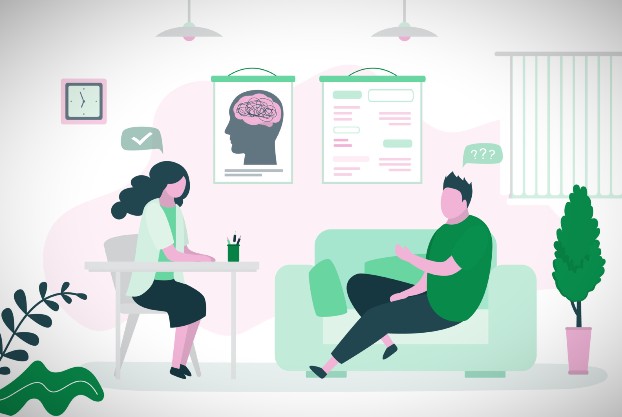Did you know that spending time in nature can have a positive impact on your mental health? It’s not just a personal belief, but a scientifically proven fact. Research has shown that being in nature can improve mood disorders like depression and anxiety, reduce stress, increase happiness, improve focus, and enhance cognitive functioning. In this article, we will explore the mental health benefits of spending time in nature, provide advice on the best ways to reap those benefits, and highlight how REI Co-op can help you make the most of your time outside.
Did you know spending time in nature can actually improve your mental health? Environmental psychologist Nancy Wells clues into how to reap the benefits of the great outdoors.

You know that sense of bliss you feel when riding your bike, or that instant boost you get when the sunshine hits you on a stroll through the park?
While personal experience may tell us that being outside is good for the soul, a growing body of scientific research shows that spending time in nature actually improves our mental health. What’s more, these benefits can be felt whether you’re hiking in the mountains or spending time in your own backyard.
Studies show spending time in nature can improve mood disorders like depression and anxiety, decrease stress, increase happiness, improve focus, and sharpen cognitive functioning.
“The benefits of nature on mental health have been demonstrated in a variety of ways, both cross-sectionally (meaning at one point in time) and longitudinally (over years),” says Nancy Wells, Professor of Human Centered Design at Cornell University. “These benefits have been seen among children as well as among adults.”
Read on to learn more about the positive mental health effects of nature, advice on the best ways to reap those benefits, and how REI can help you spend more time outside.
How Exactly Does Nature Help Our Mental Health?

The connection between nature and improved mental health can be seen in a number of ways, Wells says.
“In some contexts – particularly urban environments – a park or natural area may function as a sort of ‘social magnet’ that draws people together,” she says. “Time in nature can foster social interaction and the development of community social ties.”
Squeezing in some outside time can also help us recover from mental fatigue, restoring and recharging our cognitive capacity. This enables us to cope more effectively with life’s challenges.
“Navigating the demands of daily life, focusing on our work, navigating over-booked schedules, and — in the era of the pandemic — bouncing from one Zoom meeting to another, ultimately results in a state of mental fatigue,” Wells says.
When our brains are overworked and we don’t take sufficient breaks, our moods and cognitive functioning can suffer.
“When we are mentally fatigued, we find it difficult to focus our attention on the task at hand, have trouble blocking out distraction, and are more likely to be crabby or impatient with our family, roommates, or co-workers,” Wells explains. “Fortunately, time in nature allows us to recover from mental fatigue and replenish our cognitive capacity. We can then think more clearly, cope more effectively, and behave more reasonably.”
How Long Do We Need to Spend Outside to Reap the Benefits?
Is there a magic number for how much time we should spend in nature in order for it to make a difference in our mental health?
One study of 20,000 people found that those who spend just two hours each week in nature are substantially more likely to report good health and psychological well-being than those who don’t.
Wells’ advice takes it a bit further. She recommends aiming to get outside every day for a “daily dose of nature.”
“Our engagement with the natural environment shouldn’t be something reserved for the weekend or for an annual vacation when we embark on a grand wilderness expedition,” she says. “Ideally, we should seek out opportunities to spend time in nature every day, whether it is a lunch-time walk, or an after-school bike ride.”
Tips to Spend More Time Outside

It’s important to note that you don’t need to go on a mountaineering expedition or week-long camping trip to reap the benefits of nature. You can tap into these benefits daily right outside your front door.
Whether you’re a regular hiker, cyclist, or just looking for new ways to get outside near your home, consider immersing yourself a step further with the help of REI Co-op. REI can help you get outside with the best gear and expertise to support you doing the activities you love and unlock the potential to create the best version of yourself.
“Biking, kayaking, hiking are all terrific ways to engage with the natural environment and to restore attentional capacity,” Wells says. “But walking or even sitting in local parks or green backyards is also beneficial.”
City folks have plenty of options too, Wells says.
“In cities, people can seek out small pocket parks or backyard opportunities for a regular dose of nature,” she recommends. “Vary routes to and from work or school or errands. When possible, choose walking routes in the city that cut through a park or travel down a tree-lined street.”
Ultimately, it’s not so much what you do in nature, but simply making the time for it that makes the difference.
In conclusion, spending time in nature can be a powerful tool for improving your mental health. Whether you’re hiking in the mountains, cycling in your neighborhood, or simply taking a stroll in a local park, immersing yourself in nature can have a positive impact on your well-being. The key is to make time for nature in your daily life, even if it’s just a short walk during your lunch break or a leisurely afternoon in your backyard. With the help of REI Co-op, you can access the best gear and expertise to support your outdoor activities and unlock the potential to create the best version of yourself. So, go ahead, step outside, and let nature nourish your mind, body, and soul.
Source: https://www.health.com/featured/NurturedByNatureREI2022








